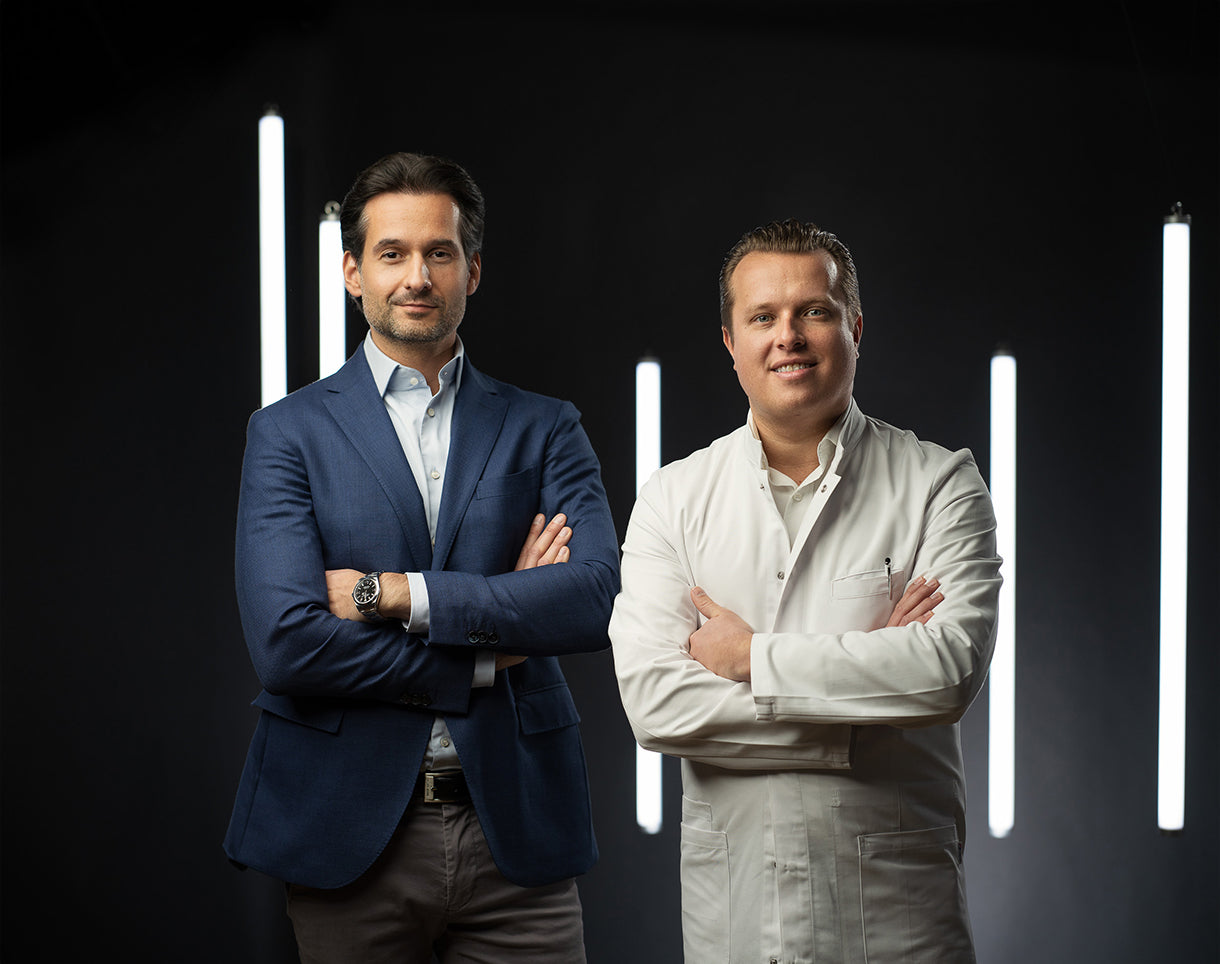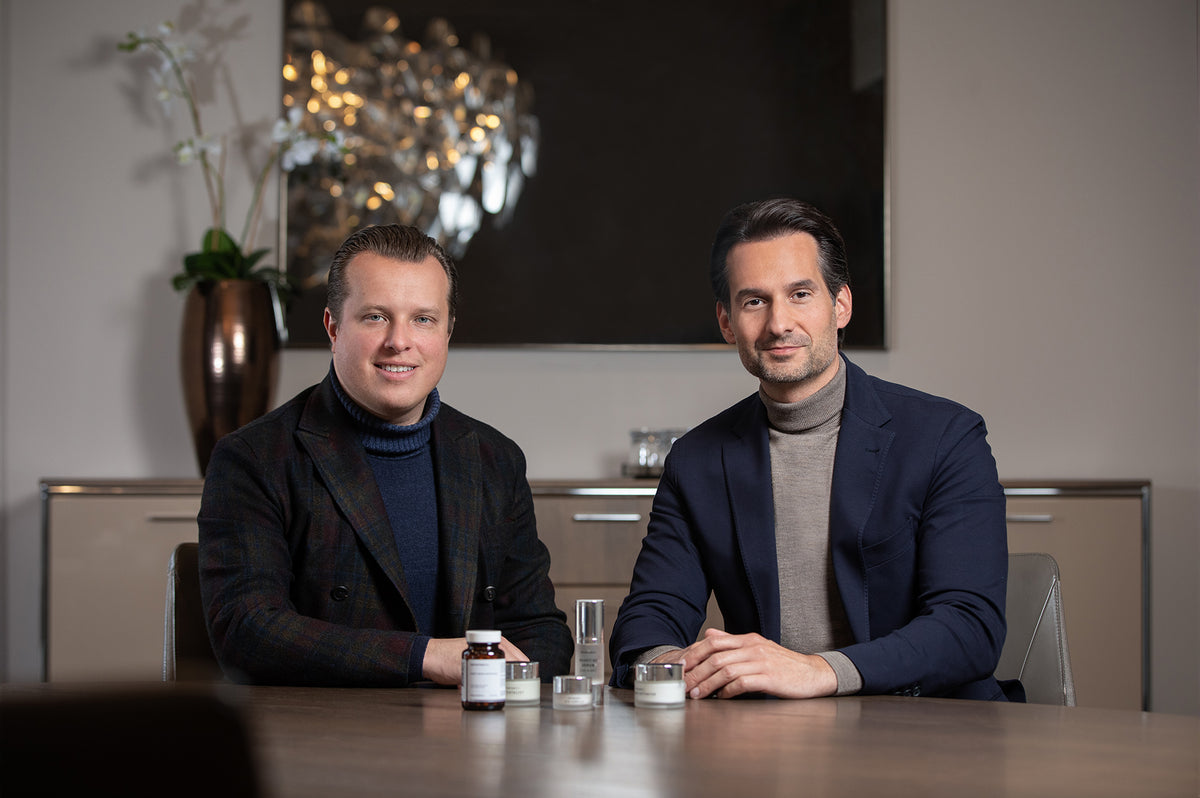Tomorrowlabs was founded as a longevity research centered biotech company by Dominik Thor, PhD and Dominik Duscher, MD. Drawing on their extensive research background in longevity research, pharmaceutical chemistry, plastic surgery, and stem cell biology, Thor and Duscher began creating products with a science-driven, longevity-based philosophy. They rely solely on best scientific practices and medical research ethics to formulate effective cosmetic products.

0.2. Finding the beauty in medical research.
As leading experts on cellular regeneration pathways, epigenetics, and aging research, Thor and Duscher are popular spokespersons of the young field of medical science called longevity.
It's a field of science that deals with new ways of increasing our natural lifespan through the readjusting of our lifestyle and modern therapeutics.


